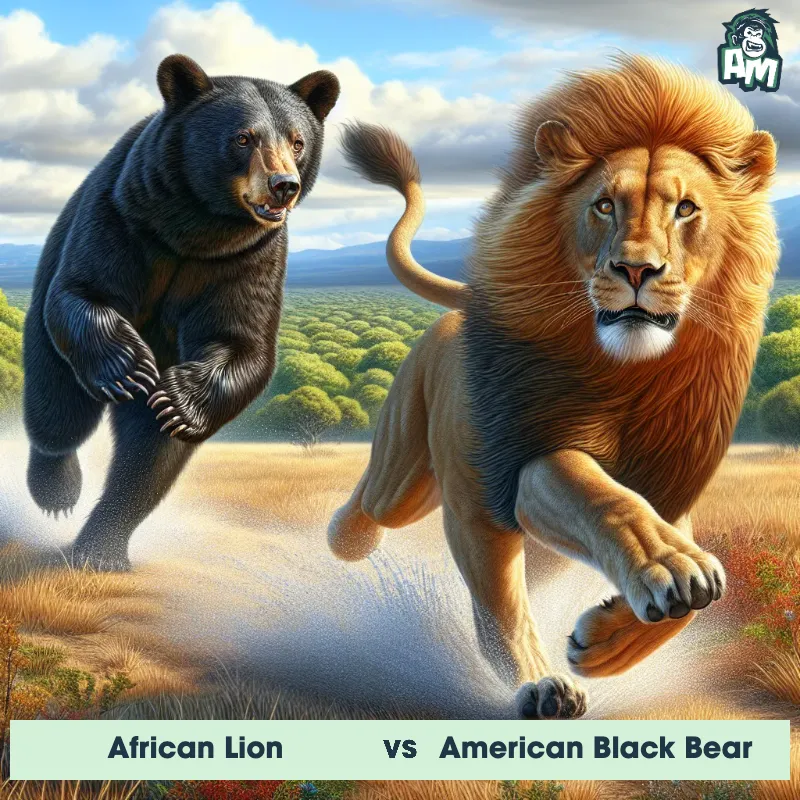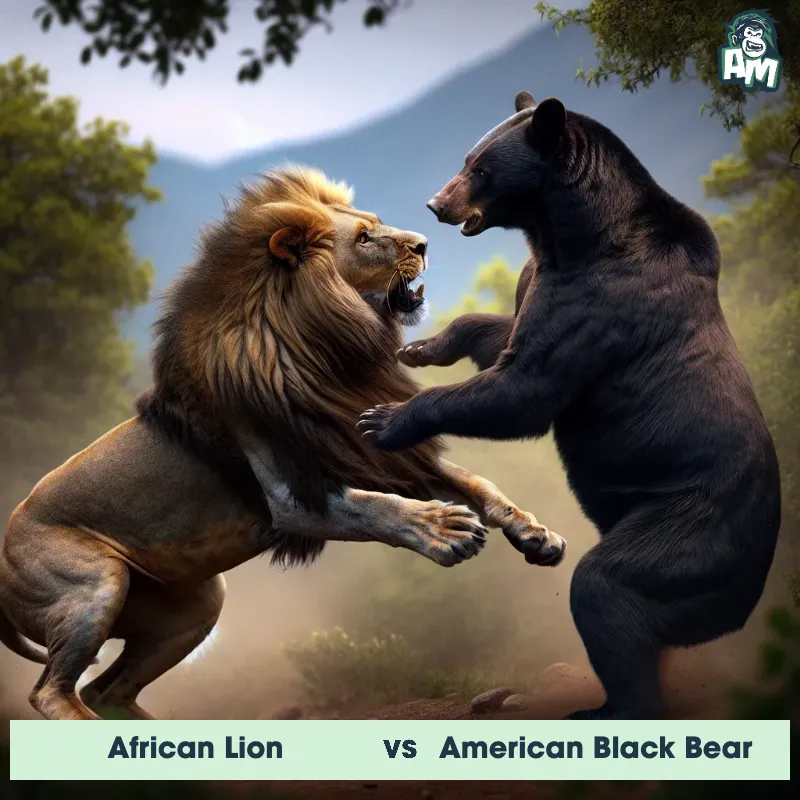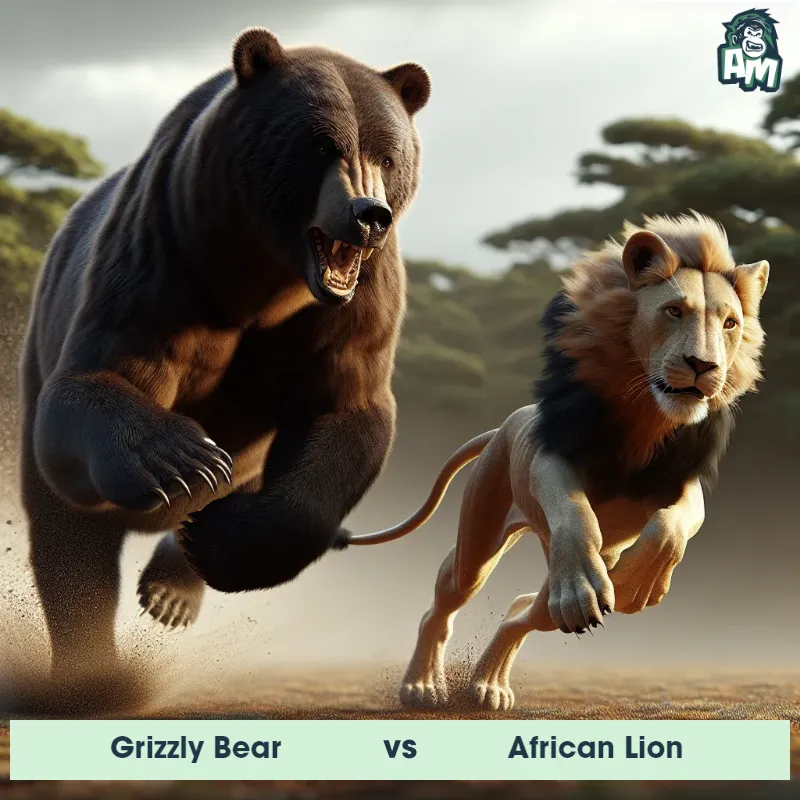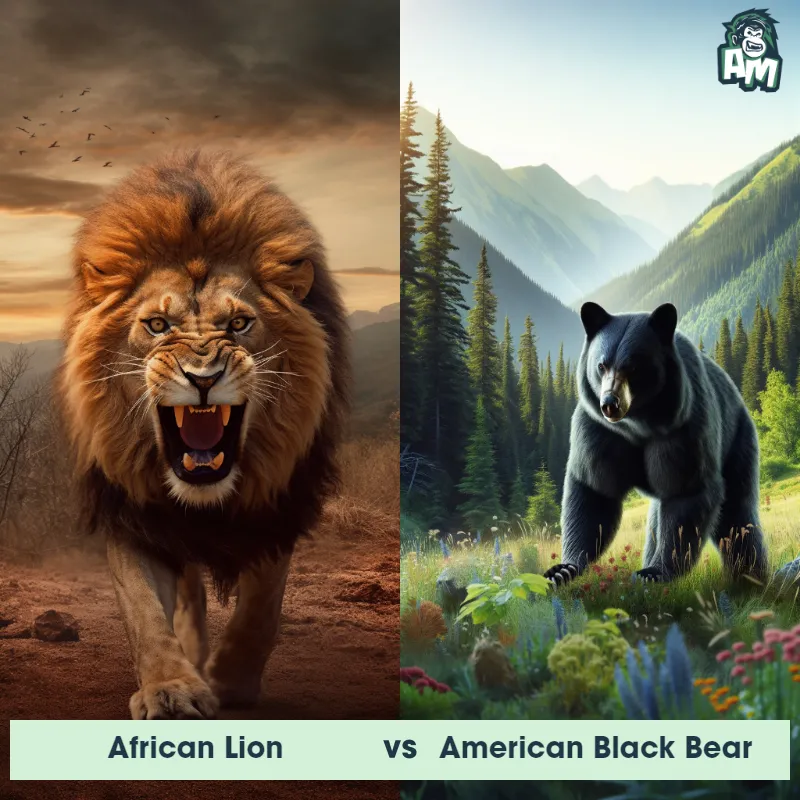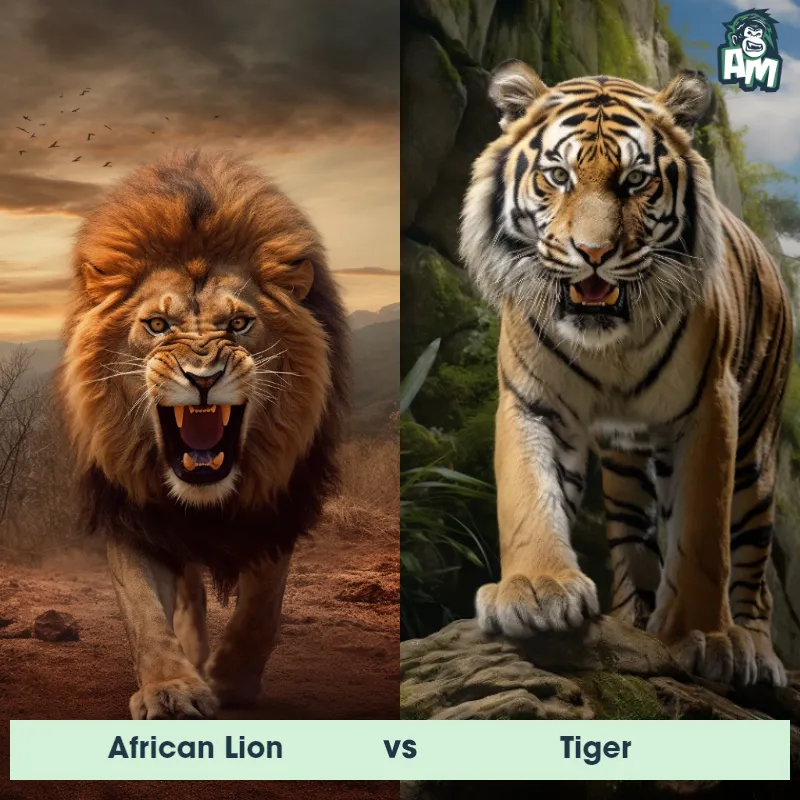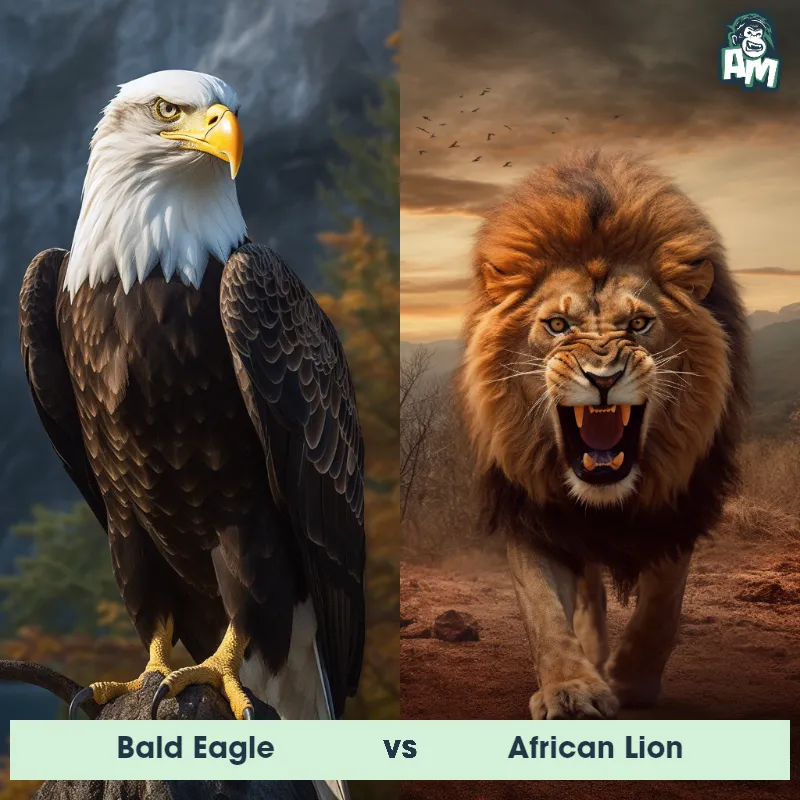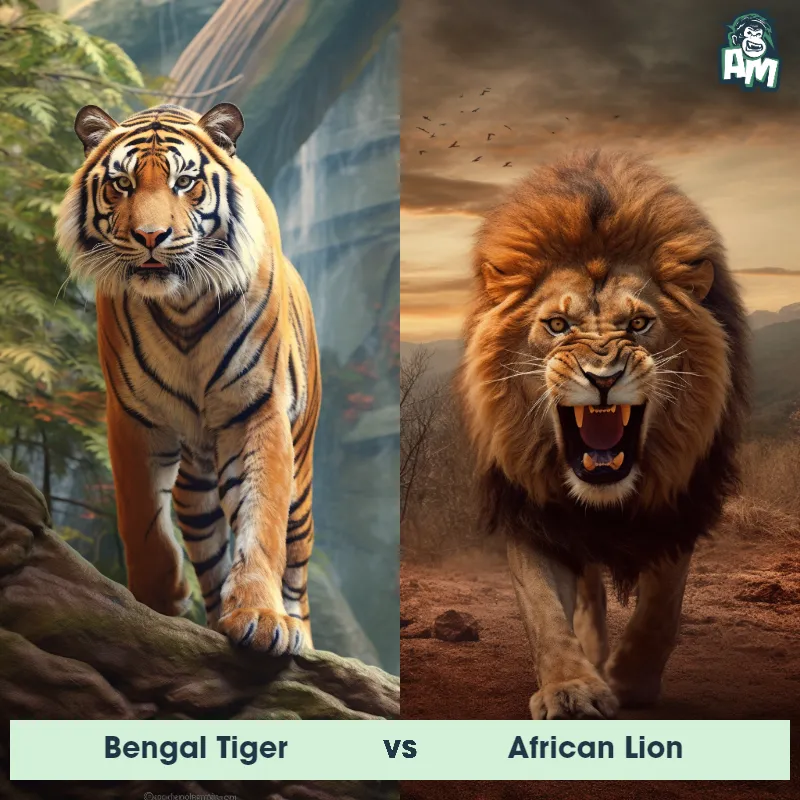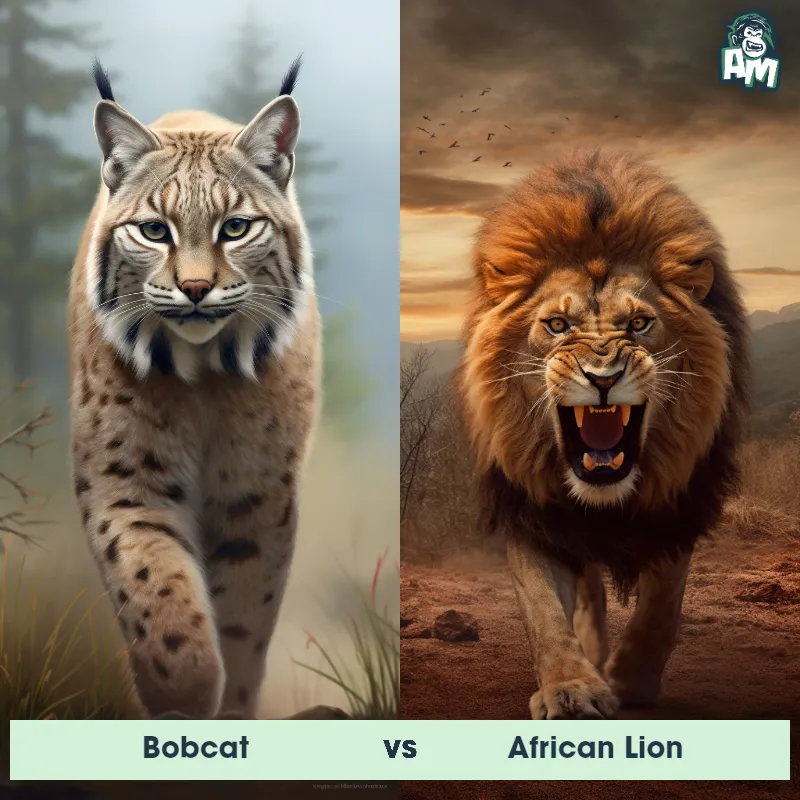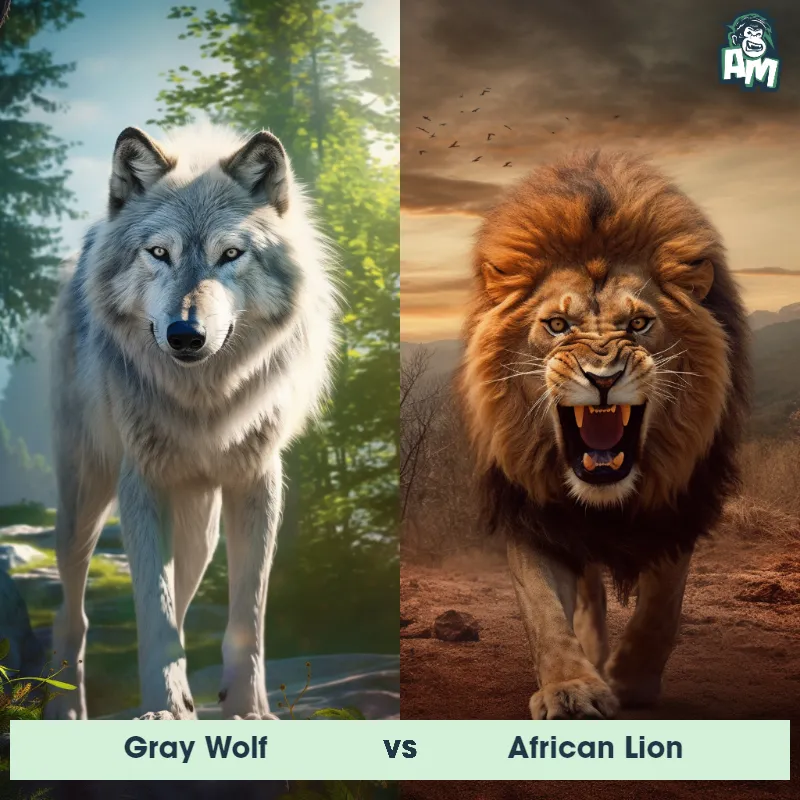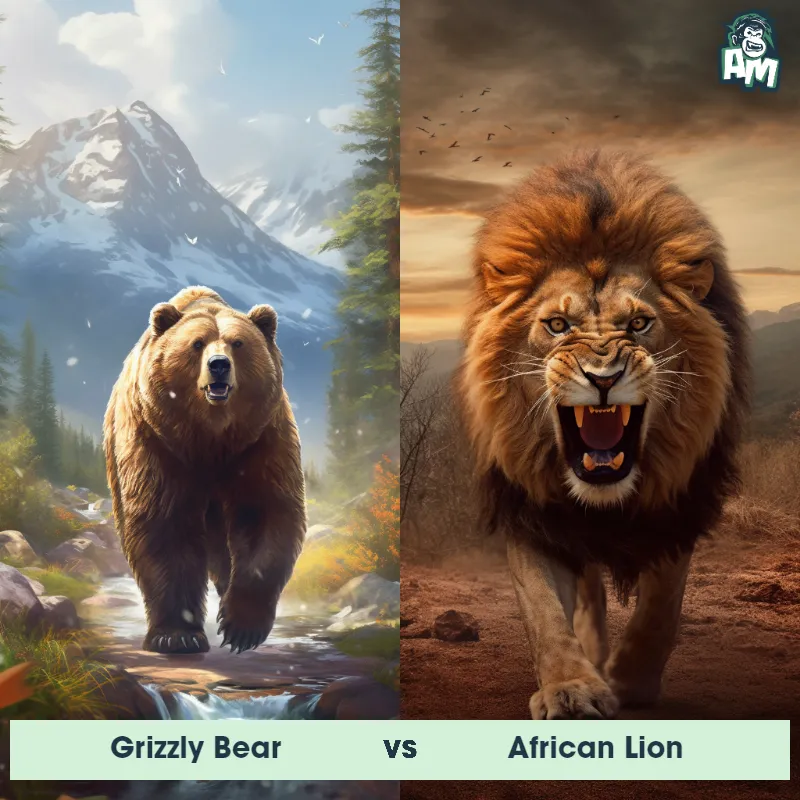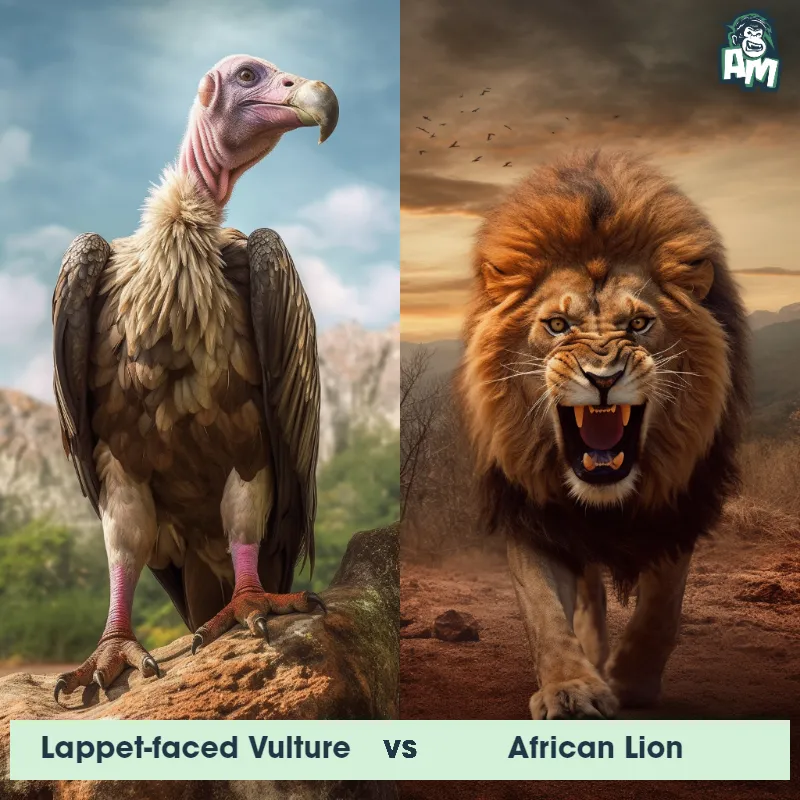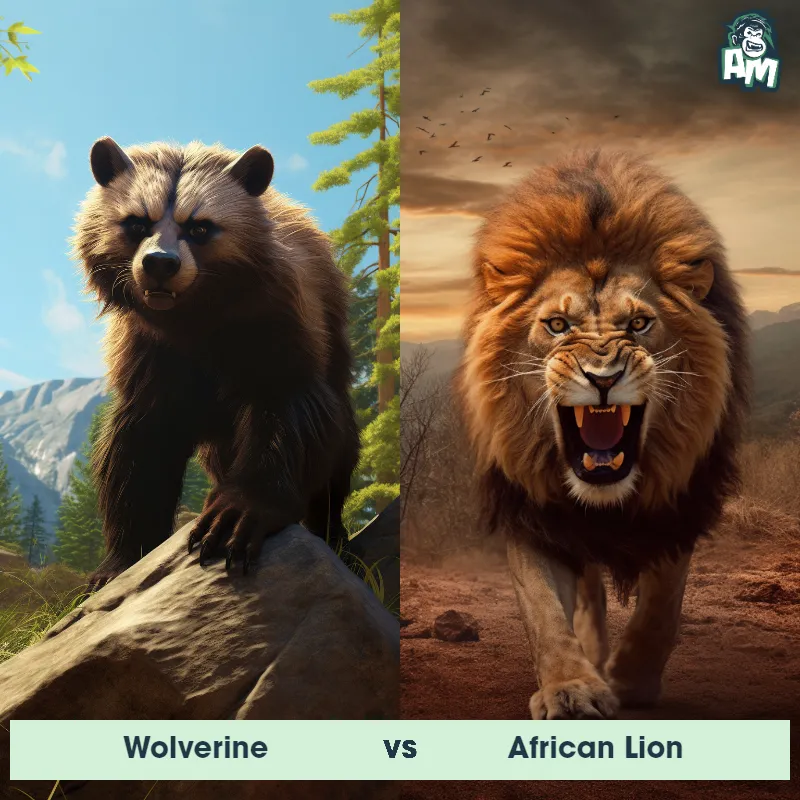The African Lion
The African Lion, also known as Panthera leo, is a large carnivorous mammal that is famous for being the king of the jungle. They are easily recognized by their golden-brown fur with a mane of hair around the head, neck, and shoulders of the males. Lions have a muscular build, with strong legs and a long tail that helps them with balance. They are highly social animals, living together in prides, and they communicate using various vocalizations, such as roars and grunts. Lions are skilled hunters that mainly prey on large herbivores like zebras and wildebeests, and they have a strong sense of teamwork during the hunting process.

| African Lion | |
|---|---|
| Size | Up to 4 feet (1.2 meters) at the shoulder |
| Weight | Up to 550 pounds (250 kilograms) |
| Speed | Speed: 50 mph (80.47 km/hr) |
| Key Strength | Powerful jaws and sharp claws |
| Biggest Weakness | Vulnerable to attacks on the back and sides |
| Scientific Name | Panthera leo |
| Family | Felidae |
| Habitat | Grasslands, savannas, and open woodlands |
| Geography | Africa |
| Diet | Carnivorous, primarily hunting large ungulates such as zebras and wildebeest |
| Lifespan | 10 years - 14 years |

The African Lion
The African Lion, also known as Panthera leo, is a large carnivorous mammal that is famous for being the king of the jungle. They are easily recognized by their golden-brown fur with a mane of hair around the head, neck, and shoulders of the males. Lions have a muscular build, with strong legs and a long tail that helps them with balance. They are highly social animals, living together in prides, and they communicate using various vocalizations, such as roars and grunts. Lions are skilled hunters that mainly prey on large herbivores like zebras and wildebeests, and they have a strong sense of teamwork during the hunting process.
Fun Fact: African lions are extremely powerful and can leap distances of up to 36 feet in a single bound, enabling them to effortlessly chase down their prey.
| African Lion | |
|---|---|
| Size | Up to 4 feet (1.2 meters) at the shoulder |
| Weight | Up to 550 pounds (250 kilograms) |
| Speed | Speed: 50 mph (80.47 km/hr) |
| Key Strength | Powerful jaws and sharp claws |
| Biggest Weakness | Vulnerable to attacks on the back and sides |
| Scientific Name | Panthera leo |
| Family | Felidae |
| Habitat | Grasslands, savannas, and open woodlands |
| Geography | Africa |
| Diet | Carnivorous, primarily hunting large ungulates such as zebras and wildebeest |
| Lifespan | 10 years - 14 years |
Match Highlights
African Lion Matchups
We use AI to simulate matchups between the African Lion and other animals. Our simulation considers size, strength, and natural predatory behaviors to determine the most likely outcome.

Can't find the Matchup you want?
Create Your Own MatchupAfrican Lion: Diet, Predators, Aggression, and Defensive Behaviors
What do African Lions eat?
African Lions mainly prey on large mammals such as zebras, buffaloes, and wildebeests. They are apex predators and have a varied diet that can also include smaller mammals like hares and birds. Lions are powerful hunters that typically hunt in groups, known as prides, to increase their chances of successfully capturing prey.
Do African Lions have any predators?
While adult African Lions do not have many natural predators due to their size and strength, they can sometimes be targeted by other large predators such as hyenas and occasionally crocodiles. One of the biggest threats to African Lions is humans, who have encroached on their habitats, leading to habitat loss and conflict.
Are African Lions aggressive?
African Lions are known for their aggression, especially when it comes to defending their territory or their young cubs. They will fiercely protect their pride from intruders, often engaging in fierce battles with rival groups. However, African Lions are also social animals that exhibit strong bonds within their pride, engaging in grooming and playful interactions.
Do African Lions fight?
African Lions are known for their prowess in fighting, especially when it comes to establishing dominance within their pride or protecting their territory. Male lions often engage in fierce battles with rival males to assert their dominance and secure mating rights. These fights can be intense and sometimes result in serious injuries or even death.
How do African Lions defend themselves?
African Lions have various ways of defending themselves from threats, including their sharp claws, powerful jaws, and teamwork within their pride. When faced with a potential threat, lions will often roar loudly to intimidate their adversaries and warn them to stay away. In confrontations, they may also charge or lunge at their opponents to assert dominance.
What is the biggest weakness of African Lions in a fight?
Despite their strength and hunting prowess, African Lions have a major weakness in prolonged physical exertion. Lions are sprinters rather than long-distance runners, and they can quickly become exhausted during a chase or a prolonged fight. This weakness can be exploited by their prey or rivals, leading to potential vulnerability in extended confrontations.
Fun Fact: The roar of the male African lion can be heard up to a distance of 5 miles, serving as a way to establish territory and intimidate rivals.
Fun Fact: Although known as the king of the jungle, African lions actually inhabit grasslands and savannas rather than dense forests, showcasing their ability to adapt to various habitats.




